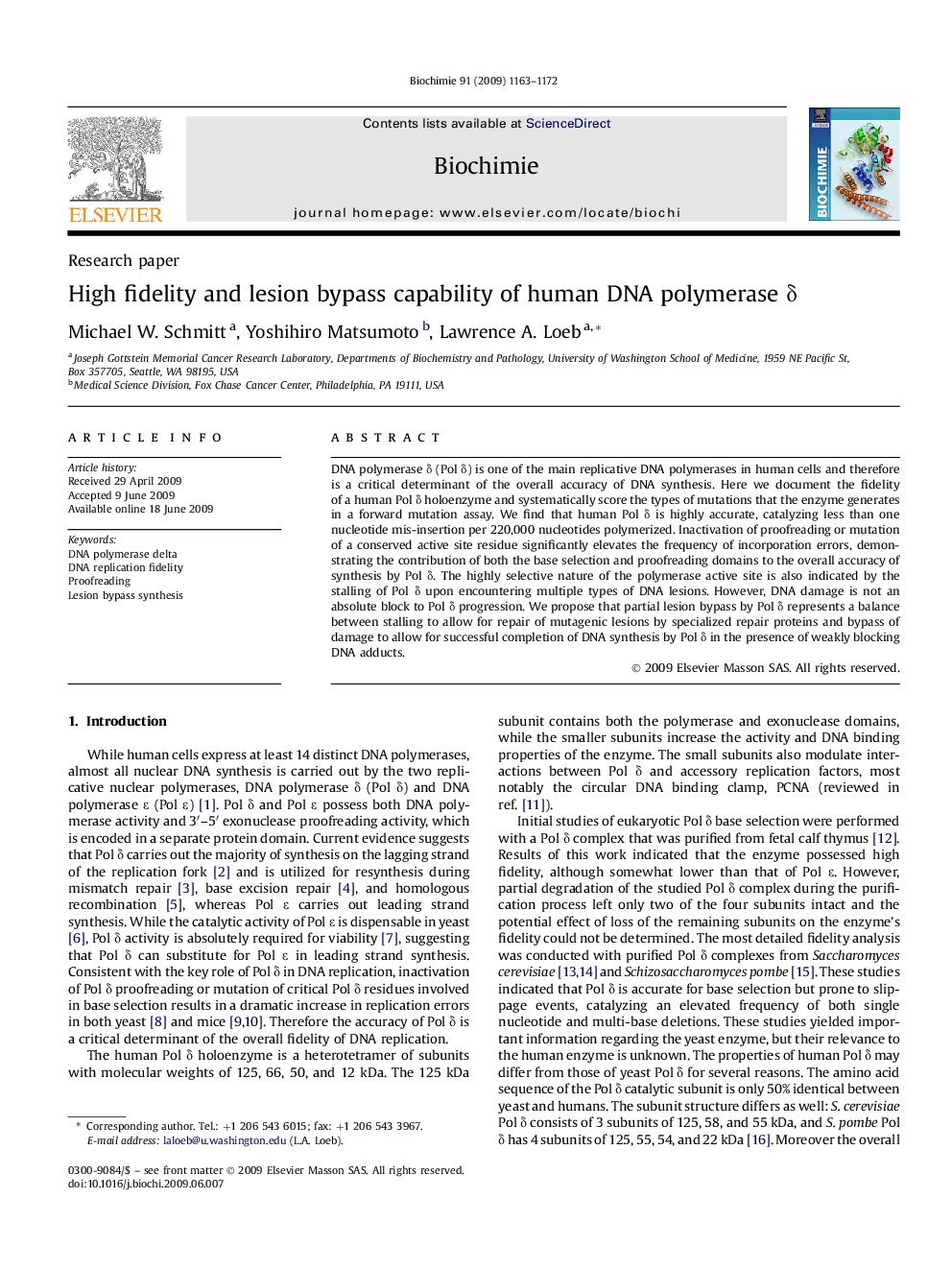| Article ID | Journal | Published Year | Pages | File Type |
|---|---|---|---|---|
| 1953003 | Biochimie | 2009 | 10 Pages |
DNA polymerase δ (Pol δ) is one of the main replicative DNA polymerases in human cells and therefore is a critical determinant of the overall accuracy of DNA synthesis. Here we document the fidelity of a human Pol δ holoenzyme and systematically score the types of mutations that the enzyme generates in a forward mutation assay. We find that human Pol δ is highly accurate, catalyzing less than one nucleotide mis-insertion per 220,000 nucleotides polymerized. Inactivation of proofreading or mutation of a conserved active site residue significantly elevates the frequency of incorporation errors, demonstrating the contribution of both the base selection and proofreading domains to the overall accuracy of synthesis by Pol δ. The highly selective nature of the polymerase active site is also indicated by the stalling of Pol δ upon encountering multiple types of DNA lesions. However, DNA damage is not an absolute block to Pol δ progression. We propose that partial lesion bypass by Pol δ represents a balance between stalling to allow for repair of mutagenic lesions by specialized repair proteins and bypass of damage to allow for successful completion of DNA synthesis by Pol δ in the presence of weakly blocking DNA adducts.
